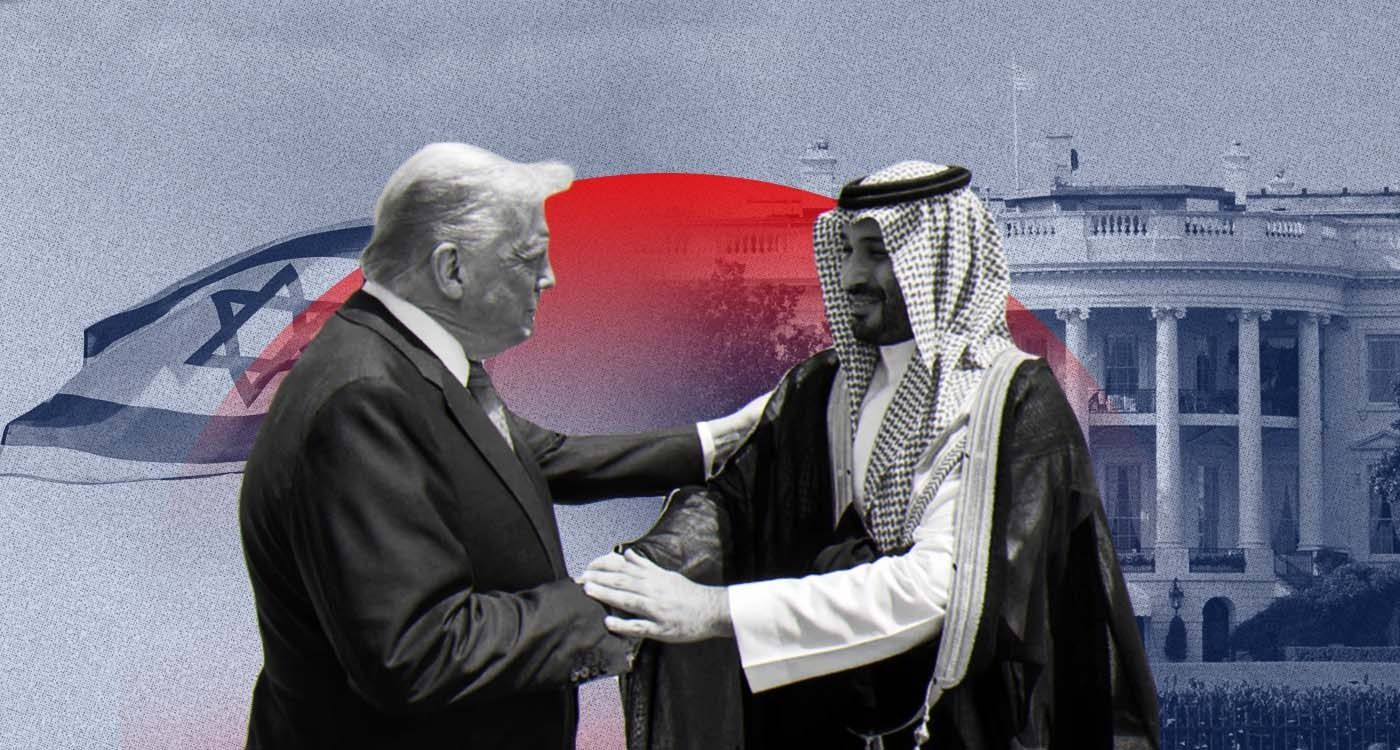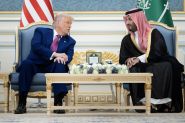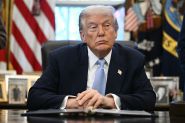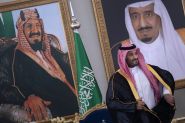- Home
- Middle East
- Why Normalization with Israel Will Revive Saudi Arabia

Saudi Arabia risks irrelevance by tying its future to the failed Palestinian cause.
Saudi Arabia is rapidly losing regional relevance, with Sunni rivals Qatar and Turkey encroaching on its traditional leadership roles. The Kingdom’s economy remains mired in second gear, unable to transition from oil dependency to a knowledge-based model. Riyadh’s repeated promises of financial windfalls to the U.S. now appear to be unfulfilled pledges.
No country stands to gain more from immediate, unconditional normalization with Israel than Saudi Arabia, both in terms of regional influence and economic diversification. Yet Riyadh clings to the outdated “land for peace” framework—first offered by Israel in 1967 and long since abandoned by Jerusalem—despite Saudi irrelevance in today’s geopolitical reality.
Riyadh continues to follow an antiquated playbook: rely on oil revenues, dangle economic incentives before global powers, and insist on “peace for a Palestinian state,” or more recently, a mere “pathway to statehood.” This stance persists even as the Palestine Liberation Organization (PLO) and Hamas fail to agree on basic governance issues—such as allowing a non-partisan technocratic committee to manage post-war Gaza—let alone a pathway to anything.
But without governance capabilities, there is no number of concessions that Israel can offer to secure a pathway to anything Palestinian.
Crown Prince Mohammed bin Salman (MBS) has become one of Saudi Arabia’s most transformative leaders. He directly addressed three longstanding U.S. concerns in the post-9/11 era: an aging leadership, unclear succession, and excessive deference to Islamist radicals.
At 29, as defense minister, MBS decisively dismantled domestic Islamist extremism. He secured a clear line of succession—becoming the first grandson of the kingdom’s founder, Abdulaziz, with a real chance of becoming king—and launched Vision 2030 to pivot the economy toward knowledge, innovation, and services.
This required ending Saudi regional problems, including normalizing ties with Israel, opening airspace to all, including Israeli flights, and positioning Saudi Arabia as a central node in global trade corridors like the India-Middle East-Europe Corridor (IMEC), which also includes the Jewish state. MBS also replaced decades of defensive pacifism with proactive security policies, taking military action against Houthi threats in Yemen.
Then came October 7, 2023. Hamas’s massacre of 1,200 Israelis triggered a devastating two-year war that derailed Saudi-Israeli normalization. Riyadh further retreated from several policies:
- When Israel confronted Iran—long a Saudi strategic interest—Riyadh remained neutral and publicly condemned Israeli actions.
- At U.S. President Donald Trump’s Gaza peace summit in Egypt, Saudi Arabia was conspicuously absent from the table, where the U.S., Egypt, Turkey, and Qatar sat.
- In Syria, Riyadh backed new leader Ahmad al-Sharaa just weeks after hosting Bashar al-Assad at the Arab Summit, indicating that the Saudis do not have a clear plan for the country. The jury is still out on Sharaa.
- In Lebanon, after sidelining the Hariri family and aligning solely with Christian leader Samir Geagea, Saudi Arabia watched Qatar and Turkey dominate the 2025 municipal elections in Sunni-populated areas. Scrambling to recover, Riyadh revived ties with Druze leader Walid Jumblatt and courted Assad-aligned Sunni figures like Faisal Karami—clear signs of lost influence over Lebanon’s Sunni community, historically a Saudi stronghold.
Qatar is now helping fund the Lebanese Armed Forces and wields unprecedented sway in Washington. Turkey asserts its leadership across the Arab world. Saudi Arabia, once the region’s preeminent Sunni power, now occupies the back seat—watching others shape outcomes it can no longer control.
Even in dealing with the Palestinians, Riyadh clings to the discredited PLO, long after the international community abandoned one of the most corrupt and ineffective organizations in modern history. Just as PLO leaders now watch their fate being decided on television, Saudi Arabia, too, risks irrelevance by tying its future to a failed cause.
The $600 billion investment pledge that Riyadh has dangled since Trump’s first term has lost leverage. With Saudi GDP per capita now ranking fourth in the GCC and globally behind Slovenia, Riyadh must break from convention. A bold declaration of full and unconditional normalization with Israel would upend the regional order. It would outmaneuver Turkey—which maintains diplomatic ties with Israel—and Qatar, which engages Israel informally but refuses formal relations.
Saudi normalization with Israel would unlock high-tech partnerships, aviation routes, and trade corridors, accelerating Vision 2030 and restoring Saudi centrality.
MBS once championed “Saudi First.” Reviving that vision means cutting loose the Palestinian anchor, embracing Israel without preconditions, and reclaiming regional dominance—the way Saudi Arabia did from 1945 to 2005.
If MBS fails to act, his Tuesday meeting with Trump at the White House will be just another photo opportunity. But if he seizes this moment, Saudi Arabia can reclaim its throne—not through oil but through bold, forward-looking leadership.
Read more




Comments